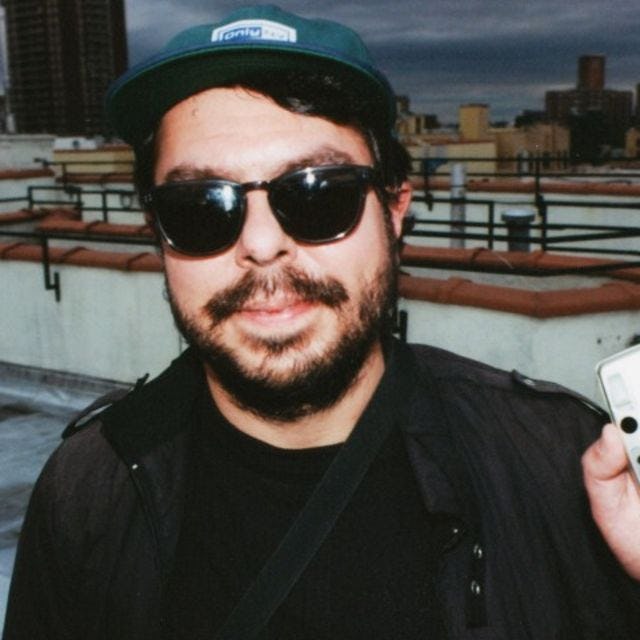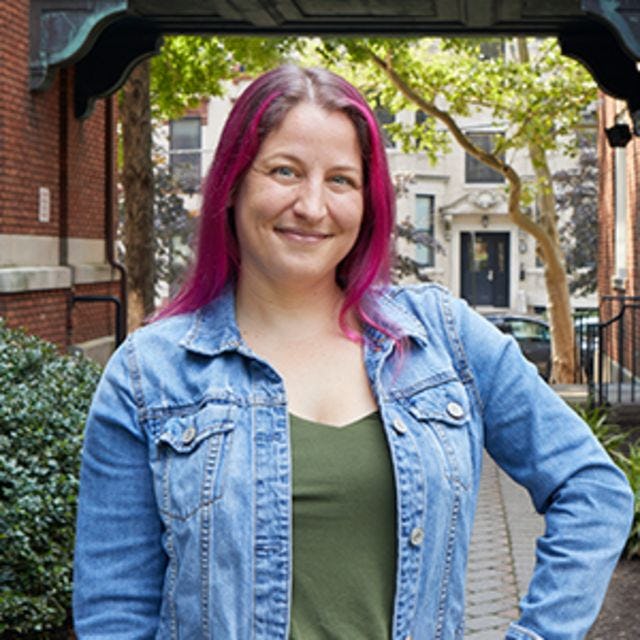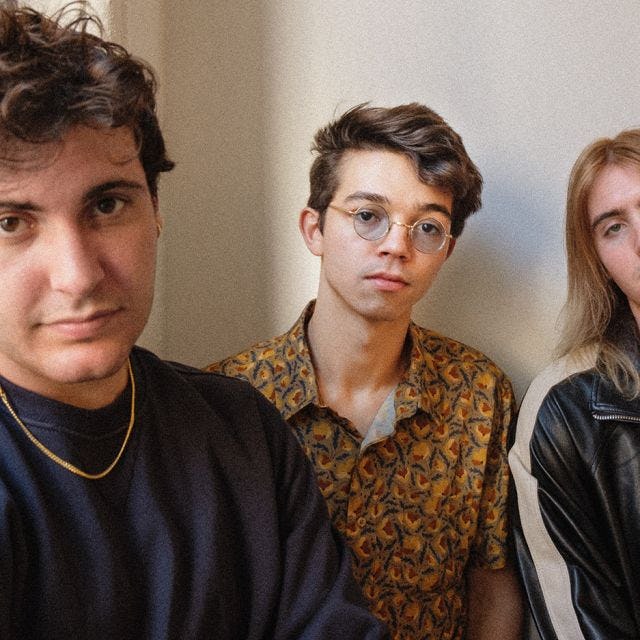
Bachelor’s in Music Technology
Program Details
Degree
Bachelor of ArtsAvailable
On campusCreate, Innovate and Redefine Sound
Fueled by creativity and grounded in theory, Stevens' music and technology major empowers students to engage in hands-on artistic experimentation within a tech-powered framework.
Housed in the School of Humanities, Arts and Social Sciences, this Bachelor of Arts program equips students with next-generation skills, preparing them for rewarding careers in music and sound design. Our graduates excel as sound engineers, producers, composers and more, securing positions with top companies like Disney, NBC Universal and Netflix.
Catalyze Career Success
Our program opens doors to a multitude of career paths in the audio and creative industries, including sound engineering, music production and audio design. Graduates emerge as industry leaders, driving innovation and setting new standards.
Professional Outcomes
Our dynamic curriculum cultivates essential technical skills and creative thinking. Students are well-prepared for a wide range of roles, leading them to companies where their expertise drives industry innovation.
Social Media Engineer, Apogee Electronics
Senior Digital Systems Engineer, ABC News, The Walt Disney Company
Audio Engineer, Major League Baseball
Broadcast Engineer, NBC Universal
Launch Manager for Product Discovery and Promotion, Netflix
Chief Audio Engineer, Peloton
Technician, PSAV (Presentation Services Audio Visual)
Music Programming Operations Coordinator, SiriusXM Radio
Vice President, Ultra Records
Internships
Our prime location in Hoboken, just minutes from New York City, provides students with unparalleled opportunities to pursue internships in their fields of interest. These hands-on experiences help them gain industry connections that pave the way for future success.
Music Production Intern, 888 Records
Urban Promotions Intern, Atlantic Records
Intern, The Mastering Palace
Intern, Power Station (New York)
Urban Promotions Intern, RCA Records
Continuing Education
With a solid foundation in theory and practice, our graduates are well-equipped to pursue advanced education. Many secure placements in esteemed PhD programs that further enhance their expertise and leadership potential.
Juilliard, D.M.A.
Rutgers Mason Gross School of the Arts, Ph.D.
Tech-Powered Curriculum
Expect an environment that celebrates collaboration and exploration. Music and technology students record and mix with professional tools, form collaborative ensembles, undertake private study of their instrument of choice, design and compose sound for media and experiment with electronic music production techniques across genres.
What does the four-year study plan entail?
The music and technology curriculum amplifies personal creativity by fostering technological innovation within a community that emphasizes collaboration. To achieve this, the program's plan of study combines core music fundamentals with state-of-the-art techniques in audio production, engineering and technology, all within a supportive environment built on professionalism and mentorship.
A rigorous sequence of courses in music theory, history, composition, recording, production, sound design, electronic music, instrumental performance and technological innovation helps students hone their skills.
Students begin their studies with a strong foundation in instrumental lessons and music theory, enriched by an understanding of how music in its many forms has shaped human culture throughout history. The signature "Creative Collaboration" sequence then allows students to develop their composition, performance and engineering skills in a hands-on environment.
To prepare graduates for a wide range of exciting outcomes, the curriculum introduces the latest innovative technologies in music production and provides professional networking and development opportunities to expand on each student’s creative practice.
What is the “Creative Collaboration” sequence?
In this sequence of three courses, students form a band or ensemble and work together to produce, perform and record original music.
Form bands and ensembles to learn theory and practice
Develop skills in musical dynamics, languages and systems
Refine and record original music with studio time and critique
What is the “Creation Bucket?”
Taken by all music and technology majors, these courses develop skills in musical composition and performance. Students take three courses from the following list:
Programming in Max
Music Composition
Electroacoustic Composition
Techno Music Composition
Orchestration
Electronic Music
Spatial Music Applications
Creating Musical Arrangements
Using Audio Techniques
Space to Create
Stevens’ new state-of-the-art music and technology facilities give students access to professional studios, rehearsal rooms, classrooms, gear storage, instrument checkout and on-site lab support, all in one creative hub.
These spaces foster creative exploration by providing convenient access to industry-standard technology through both credit-bearing course projects and open studio hours. Expert facilities enhance the program's mission to cultivate a community-oriented environment in which students can explore their talents, produce high-quality original work and develop professional skills.
The HASS Sound Studio is a flexible workspace that includes a live room with multiple isolation setups and a classroom that can accommodate more than 25 students. In this reconfigurable environment, students explore the dynamic worlds of sound recording, sound design and creative collaboration. The studio features Automated Processes, Inc.’s “The Box 8” recording console, extensive outboard processing equipment, multiple drum sets, an array of microphone kits and a 9-foot Baldwin grand piano. It is designed for mixing, mastering and critical listening, giving students the tools to produce professional-quality audio and refine their technical skills.
The Kidde CTRL Studio is the program's newest specialized facility for mixing, mastering and critical listening. It is equipped with a Solid State Logic WS 924 Delta 24-channel analog recording console, ATC speakers and a 5.1 channel surround sound system.
The Stevens Electronic Music & Immersive Audio Lab, better known as the SEMIA Lab, houses a variety of Moog, Buchla and other analog and digital synthesizers, a Genelec 8.2 channel surround ring and Adam A77X stereo speakers, providing a high-quality space for mixing, critical listening and immersive audio production.
The Keyboard Lab hosts our keyboard studies course sequence and features 16 digital pianos for private and group instruction, as well as a grand piano.
Rehearsal rooms provide instruments, amplification and other necessary gear for group rehearsals and private lessons.
The lab monitor office offers staffed technical support and equipment checkout privileges for all students.
Application Process
Prospective students are encouraged to visit the Undergraduate Admissions website to learn more about the application process. Here, you can learn how to apply, see an admissions timeline and schedule a campus visit.
We believe every applicant deserves the opportunity to showcase their talents and skills. For this reason, we strongly encourage applicants to the music and technology program to submit a portfolio. We've answered all the frequently asked questions about our portfolio submission and review process so you can know what to expect.











